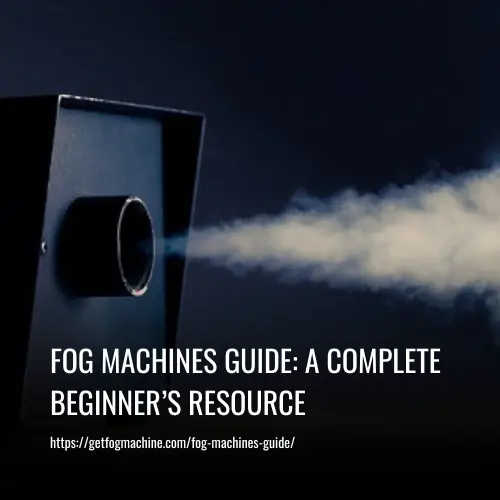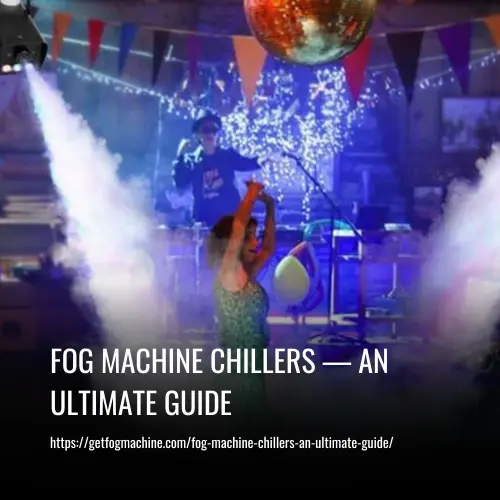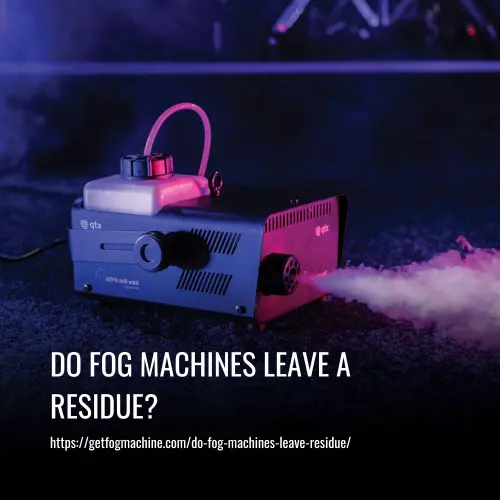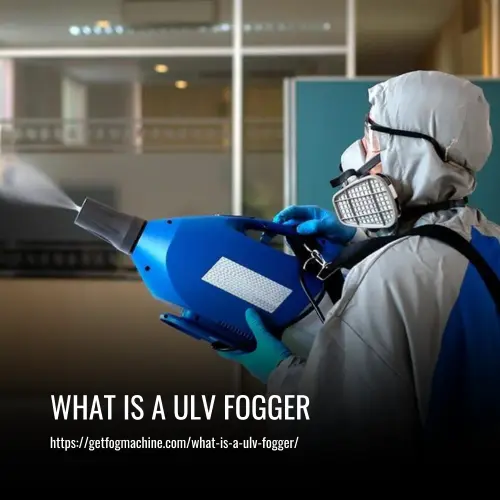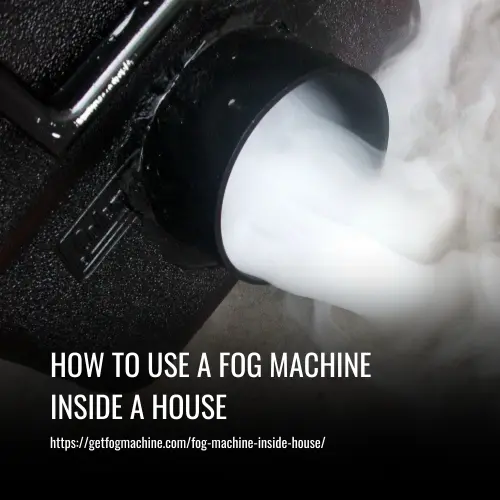What is a Microfogger: Everything You Need to Know
This post contains affiliate links. As an Amazon Associate, we earn from qualifying purchases.
A microfogger is a pocket-sized, battery-powered device that emits a fine mist of microscopic water droplets, creating a fog-like effect. It is a portable and discreet alternative to larger smoke machines, ideal for producing fog in tight spaces or on the go.
The microfogger is compact and lightweight, weighing only 0.3kg, making it easy to carry and operate. It can run for up to 4 minutes, and the power rating is adjustable, ranging from 12W to 80W. The fog emitter has a long lifespan, lasting up to 500 hours.
Refilling the microfogger is simple with the included dropper bottle. It uses a safe alternative to food-grade glycerin for the fog, ensuring non-toxic smoke production. Overall, the microfogger provides an affordable, portable, and efficient solution for creating fog effects without compromising on safety or convenience.
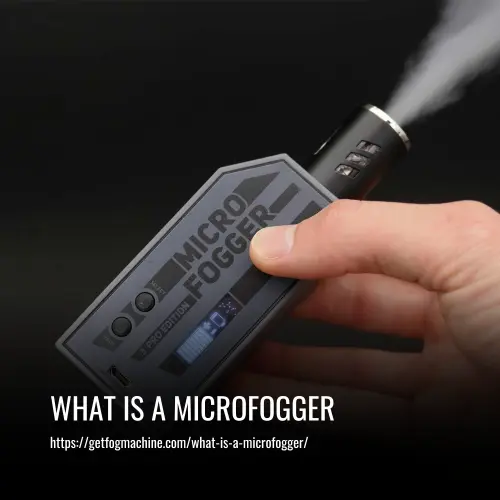
The Advantages of a Microfogger
Microfoggers are compact and versatile smoke machines that offer a convenient solution for creating non-toxic fog effects. Here are some advantages of using a microfogger.
1. Fewer Odors than Dry Ice Foggers
Microfoggers use food-grade glycerin which produces fog with fewer odors compared to other liquids in traditional fog machines. The fog is also less likely to irritate the skin and eyes.
2. Small and Portable
Weighing just 0.3kg, the Microfogger is extremely light and easy to carry. Its compact size allows it to fit in your pocket, making it discreet and perfect for use anywhere at any time.
3. Rechargeable and Easy to Use
Microfoggers are rechargeable via a USB cable, ensuring you won’t run out of power when you need it most. It also takes just seconds for the machine to create fog, providing quick and efficient fog production.
4. Space-Saving Design
Due to its small and lightweight design, the Microfogger takes up minimal space, making it ideal for situations where space is limited.
5. Affordable Solution
With prices ranging from $100 to $250, the Microfogger offers an affordable option for generating a large amount of fog quickly. It is especially useful for outdoor performances or video shoots.
6. Cordless Operation
Being battery-powered, the Microfogger eliminates the need for cords typically associated with traditional fog machines. This enhances portability and convenience in production environments.
7. Cost Reduction
By owning a Microfogger, you can eliminate the need to hire expensive fog machines for small events or parties, resulting in cost savings.
8. No Fire Hazard
Powered by a lithium-ion rechargeable battery, the Microfogger does not use heat, eliminating the risk of fire hazards often associated with gas-powered machines.
9. Low Maintenance
Microfoggers require minimal cleaning and are easy to refill. Their compact size allows for easy handling, while the absence of fire hazards simplifies care and maintenance.
10. Safe for Pets and Small Children
The fog produced by Microfoggers is safe for pets and small children as it does not contain harmful chemicals that could irritate their skin or pose a risk to their health.
The Disadvantages of a Microfogger
Microfoggers, while offering convenience and affordability, do come with some disadvantages that users need to be aware of. Here are a few disadvantages of using a microfogger.
1. Limited smoke output
One drawback of microfoggers is their relatively small liquid tank size. This means that the smoke production is limited, and the fog effect may only last for a short period, typically around four minutes, before requiring a refill.
2. Limited range
Microfoggers are designed for smaller-scale events or performances. For larger venues or outdoor settings, multiple microfoggers may be needed to achieve the desired coverage. Alternatively, hiring a more powerful machine, such as a gas-powered dry ice machine, may be necessary.
3. Short battery life
Microfoggers usually have integrated batteries that power the device. While they offer convenience in terms of mobility, the battery life may be limited, requiring frequent recharging or replacement during prolonged use.
4. Allergic Reactions
Some individuals may be allergic to certain ingredients present in microfoggers, such as propylene glycol mixture. These allergies can cause symptoms like skin rashes, itching, or respiratory issues. It is important to check the ingredients of the fog liquid and consult a healthcare professional if you have any concerns.
5. Smoke Sensitivity
The smoke produced by microfoggers may trigger smoke alarms, especially in photosensitive smoke alarm systems. This can result in false fire alarms, disruptions, and inconveniences for both users and event attendees. It is crucial to consider the sensitivity of smoke alarms and take necessary precautions to prevent false alarms.
6. Inhalation Risks
Although microfoggers use non-toxic fog, repeated and prolonged exposure to fog can lead to respiratory irritation for some individuals. It is recommended to maintain proper ventilation and ensure that fog is not continuously directed towards people’s faces or in confined spaces.
To ensure a safe and enjoyable experience, it is always best to carefully read and follow the instructions provided by the microfogger manufacturer.
Safety Precautions When Using Microfoggers
When using microfoggers, it is important to take certain safety precautions to ensure a safe and enjoyable experience. Here are some key safety tips to keep in mind:
1. Follow Manufacturer Guidelines
Always closely follow the instructions provided by the manufacturer. Do not make any modifications or changes that could compromise the safe use of the microfogger, such as altering the type of fog liquid used.
2. Check for Allergies
Some individuals may be allergic to certain ingredients present in microfoggers, such as propylene glycol mixture. Before using a microfogger, check the ingredients of the fog liquid and consult a healthcare professional if you have any concerns or known allergies.
3. Consider Smoke Alarms
The smoke produced by microfoggers may trigger smoke alarms, especially in photosensitive smoke alarm systems. To prevent false fire alarms and disruptions, consider the sensitivity of smoke alarms in the area and take necessary precautions, such as positioning the microfogger away from smoke detectors.
4. Ensure Proper Ventilation
Microfoggers use non-toxic fog, but prolonged exposure to fog can cause respiratory irritation for some individuals. Maintain proper ventilation in the area where the microfogger is being used and avoid continuously directing fog towards people’s faces or using it in confined spaces.
By following these safety precautions, you can enjoy the benefits of using a microfogger while minimizing any potential risks.
FAQs
If your microfogger produces enough smoke, it can trigger photoelectric or ionization smoke alarms. However, traditional heat-activated smoke alarms will not be triggered by a microfogger.
The amount of smoke produced by a microfogger depends on the type of liquid used. Water-based solutions will not produce much, if any, smoke. However, using an alcohol-based product may cause more smoke due to quicker evaporation. The amount of smoke will also vary based on the size of the room and the purpose of its use.
When operated properly, the fog or smoke produced by a microfogger is safe to breathe and will not cause irritation to the skin, eyes, or lungs. However, it is not advisable to directly breathe in the fog or smoke, especially for individuals with underlying breathing issues.
The number of refills required for a microfogger depends on factors such as the size of the room, the purpose of use, and the duration of the sessions. Alcohol-based liquids may require more than one refill to generate sufficient fog for an event.
The microfogger will run out of fog liquid eventually and will notify you with a beeping noise. Additionally, it may stop producing enough fog for your event when it is empty.
It is recommended to use the liquid specified by the manufacturer to refill a microfogger. However, most microfoggers use food-grade glycerine or glycerin with water as a base, so these can also be used if approved by the manufacturer.
The smoke produced by most microfoggers is made from food-grade vegetable oil. Some microfoggers may use alcohol, glycerin, or water.
While it is possible to use fog liquids from fog machines in a microfogger, they may be less effective than the recommended food-grade liquids. In some cases, there may be no smoke produced at all. It is important to note that the safety of the microfogger is only guaranteed when the recommended liquids are used.
Conclusion
A microfogger is a compact and advanced mini smoke machine that offers a convenient solution for creating a cloud of non-toxic fog or smoke. With its small size and integrated battery, it allows for autonomous operation without the need for external power sources or control cables.
The microfogger comes with a variety of features to enhance the user experience, including adjustable smoke speed, smoke density levels, and programmable timers. Its integrated screen and user interface make it easy to navigate and set up the desired smoke output. The wireless remote control receiver enables convenient control from a distance, while the extended battery life ensures continuous operation.
Safety is a priority with the microfogger, as it has safety limits and precautions in place, such as a patent-pending design and a flow rate that keeps the fog non-toxic. The proprietary technology and metal nozzle ensure a reliable and repeatable smoke production that can be adjusted to create different smoke effects.

